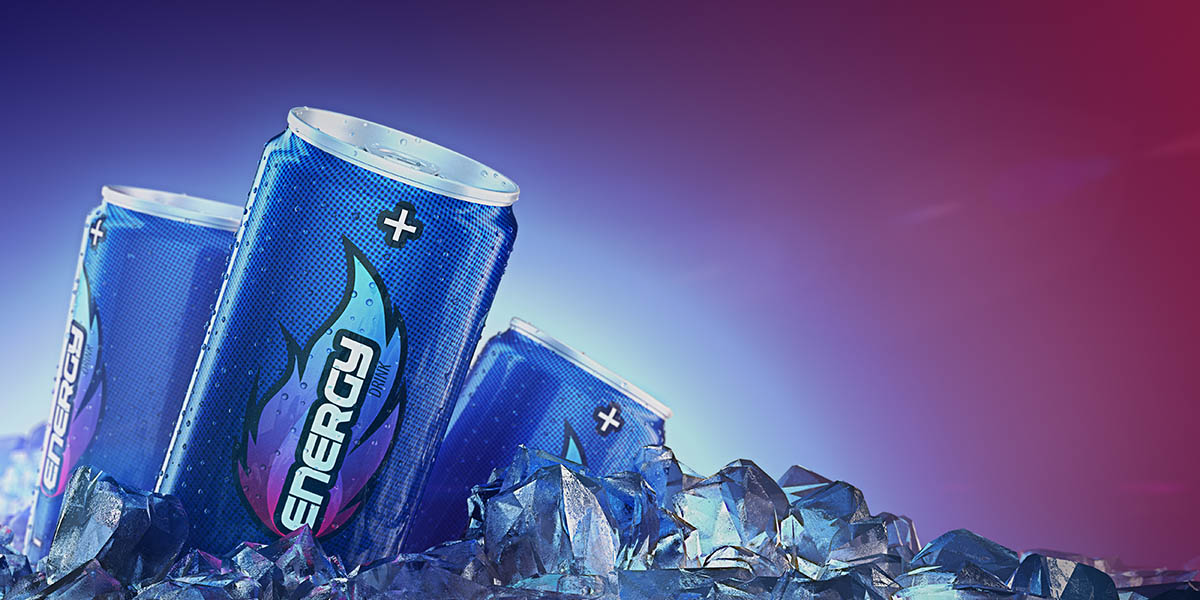
FRIEND OR FOE? Kids Love Energy Drinks. Are They Being Harmed By Them Though?
By Jennifer MacTavish, RD
Many people have seen TV commercials and other advertising for energy drinks that claim to ‘give you wings,’ ‘unleash the beast’ or ‘party like a rockstar.’
Unfortunately, the only beasts that energy drinks are likely to unleash are an increase in blood pressure, heart rate, insomnia, headaches and nausea. In some extreme cases, excess consumption of energy drinks has been blamed for additional adverse health effects, including irregular heartbeats, heart attacks, and, very rarely, death (1).
Energy drinks are a group of beverages that claim to increase energy, alertness, reaction time, and performance (3, 4). High concentrations of caffeine are the main ingredient in energy drinks. According to Health Canada, even one energy drink can exceed the safe upper limit of caffeine for many children and teens. Some medical experts have expressed additional concerns with the effects of caffeine on the developing neurological and cardiovascular systems of children.
There are also other stimulants and additives in energy drinks, resulting in numerous claims that have yet to be proven by any clinical research studies. The few studies that have been done on the effects of these ingredients have been conducted on adults only, meaning there is no safety data available for use of these products in children and adolescents (1, 2, 3, 4).
Unfortunately, children, adolescents and young adults make up over half of the market for energy drinks. Really, who could resist all their rebellious advertising, not to mention their sponsorship of various sports events and teams? Watching the sporting events sponsored by these energy drink companies, one gets the impression that becoming an international athlete is just an energy drink away. Besides the tempting advertising, energy drinks are sold in many places where children and adolescents have easy access to them (5).
Of further concern is the confusion that has been created between energy drinks and sports drinks. Sports drinks, such as Gatorade® and Powerade®, are beverages containing carbohydrates, minerals and electrolytes, designed specifically to rehydrate and refuel during prolonged sports. Energy drinks on the other hand contain mainly caffeine, high concentrations of sugar or artificial sweeteners and various other ingredients that have not been proven to improve athletic performance. The high concentration of sugar in energy drinks actually makes them harder to digest during exercise, can lead to stomach upset and impair hydration. Interestingly, even very mild dehydration during sports can negatively impact athletic performance (3, 4).
Mixing alcohol with energy drinks is another trend amongst adolescents and young adults that can be hazardous because energy drinks can mask the effects of alcohol intoxication. According to the Canadian Medical Association Journal, teens and young adults who reported mixing energy drinks with alcohol were three times more likely to be highly intoxicated and four times more likely to drive drunk than teens who did not mix the two drinks (6).
Health Canada, the American Academy for Pediatrics (AAP) and the Coaching Association of Canada all agree that energy drinks are not recommended for children and adolescents. The AAP states, “Rigorous review and analysis of the literature reveal that caffeine and other stimulant substances contained in energy drinks have no place in the diet of children and adolescents (3).”
The bottom line is children, adolescents and pregnant and breastfeeding women should not drink energy drinks; these liquids should not be mixed with alcohol; people should avoid energy drinks prior to or during exercise; and always use caution when mixing energy drinks with medications or natural health products due to potential interactions.
References
- Goldman, R. Caffeinated energy drinks in children; Canadian Family Physician. 2013; 59 (9): 947-948
- American Academy of Pediatrics. Energy drinks can Harm children; 2011.
- American Academy of Pediatrics, Committee on Nutrition and the Council on Sports Medicine and Fitness. Sports Drinks and Energy Drinks for Children and Adolescents: Are they Appropriate? Pediatrics. 2011; 127 (3): 511-528
- Health Canada. Information for parents on caffeine and energy drinks; 2011.
- Hospital for Sick Children; About Kids Health. Energy Drinks: when too much energy can hurt you; 2011.
- MacDonald, N, Stanbrook M, Hebert P. “Caffeinating” children and youth; Canadian Medical Association Journal. 2010; 182 (15):1597
Jennifer MacTavish is a Registered Dietician with the Brockton & Area Family Health Team.
Learn more about the Family Health Team at www.bafht.com or call to speak to one of the dietitians today.
This article was originally published in the Spring 2014 edition of Grey-Bruce Kids.
